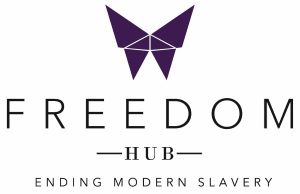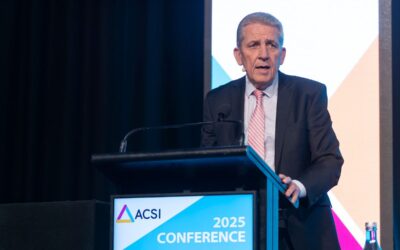Written by: Synne Jensen & Jess Irwin
Businesses can make a real impact in the fight against modern slavery. In this article, we will highlight three Australian businesses that are leading the way with their human rights responses.
WESTPAC BANKING CORPORATION: If at first you don’t succeed, try, try again.
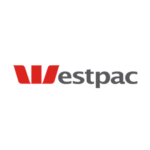 Westpac offers a compelling case study of a company that initially fell short in upholding human rights standards but, through rigorous reassessment and a commitment to meaningful change, has emerged as a leader in this critical area. The Westpac Banking Corporation openly recognises how, as one of Australia and New Zealand’s largest banks, it can influence and impact the human rights of stakeholders. As a founding member and signatory of the UN Global Compact in 2002, it has a long history of respecting human rights across its activities and relationships and has taken real action to implement these values in its operations. Despite these efforts, Westpac has still faced challenges related to modern slavery. In November 2019, AUSTRAC commenced an action in the Federal Court of Australia against the bank, claiming that activity indicating possible child sexual exploitation was not detected as effectively as it might have been. This was met with deep regret and dismay within the company. The CEO stepped down, the Chairman brought forward his retirement, and relevant staff left. By December 2020, a court-enforceable undertaking was entered into with APRA, whereby Westpac pledged to remediate weaknesses in its culture, governance and accountability and to address the root causes of those weaknesses. The company developed a multi-year transformation program, independently reviewed by Promontory (a business unit of IBM Consulting).
Westpac offers a compelling case study of a company that initially fell short in upholding human rights standards but, through rigorous reassessment and a commitment to meaningful change, has emerged as a leader in this critical area. The Westpac Banking Corporation openly recognises how, as one of Australia and New Zealand’s largest banks, it can influence and impact the human rights of stakeholders. As a founding member and signatory of the UN Global Compact in 2002, it has a long history of respecting human rights across its activities and relationships and has taken real action to implement these values in its operations. Despite these efforts, Westpac has still faced challenges related to modern slavery. In November 2019, AUSTRAC commenced an action in the Federal Court of Australia against the bank, claiming that activity indicating possible child sexual exploitation was not detected as effectively as it might have been. This was met with deep regret and dismay within the company. The CEO stepped down, the Chairman brought forward his retirement, and relevant staff left. By December 2020, a court-enforceable undertaking was entered into with APRA, whereby Westpac pledged to remediate weaknesses in its culture, governance and accountability and to address the root causes of those weaknesses. The company developed a multi-year transformation program, independently reviewed by Promontory (a business unit of IBM Consulting).
Turning things around
In April this year, Promontory released its twelfth and final report on Westpac’s response to the court-enforceable undertaking. The report states that Westpac’s program, now complete, was “one of the broadest and most ambitious risk transformation programs of its type, and required significant commitment, resources, and engagement from all parts of the Bank.” It has been marked as a major achievement and a substantial improvement to Westpac’s risk governance. In addition to this, Westpac has thus far published four Human Rights Position Statement and Action Plans. These plans set out their commitments, approach, and actions towards advancing human rights. The Westpac Foundation has also been a proud supporter of The Freedom Hub since 2020. They make an effort to implement their human rights commitments across all their roles as a financial services provider, employer, purchaser of goods and services, grantmakers and scholarship providers. Westpac’s capacity to recover and enhance its response to modern slavery serves as a compelling example of what to do when exploitation is inevitably found.
WOOLWORTHS GROUP: A fresh approach from the fresh food people.
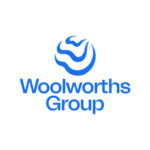 The retail and finance company Woolworths Group follows a comprehensive human rights strategy. As a case study, they are an example of pioneering in the retail space; the Group was one of the first Australian retail groups to become signatories to the UN Global Compact. They acknowledge that no global retailer is immune to modern slavery risks in their operations and supply chains and that collaboration is necessary to end modern slavery. And this is not lip service – the Group is involved with many key industry stakeholders and schemes, such as the Bangladesh Accord, the Cleaning Accountability Framework, and the Consumer Goods Forum Human Rights Coalition, to name a few. Woollies began its human rights journey in 2009 with the launch of its first Ethical Sourcing Policy. Since then, they have developed an overarching Human Rights Program, which came to be through listening to suppliers and stakeholders and being transparent with improvement areas and challenges. This program has four main pillars:
The retail and finance company Woolworths Group follows a comprehensive human rights strategy. As a case study, they are an example of pioneering in the retail space; the Group was one of the first Australian retail groups to become signatories to the UN Global Compact. They acknowledge that no global retailer is immune to modern slavery risks in their operations and supply chains and that collaboration is necessary to end modern slavery. And this is not lip service – the Group is involved with many key industry stakeholders and schemes, such as the Bangladesh Accord, the Cleaning Accountability Framework, and the Consumer Goods Forum Human Rights Coalition, to name a few. Woollies began its human rights journey in 2009 with the launch of its first Ethical Sourcing Policy. Since then, they have developed an overarching Human Rights Program, which came to be through listening to suppliers and stakeholders and being transparent with improvement areas and challenges. This program has four main pillars:
- their Responsible Sourcing Policy,
- strategies to target specific modern slavery risks;
- the maintenance of effective grievance mechanisms and
- partnering across their ecosystem.
As at June 2024, 100% of the BIG W and Woolworths Food Group direct supplier lists are available online. More significantly, the Group is also working on identifying suppliers beyond tier one. To date, more than 145 indirect suppliers have been identified in BIG W’s cotton supply chain. In addition to addressing modern slavery, the Group’s comprehensive suite of reports on sustainability, governance, and health is an incredible example of a holistic approach to safeguarding human rights throughout every aspect of company life.
THANKYOU GROUP: This is not business as usual.
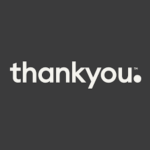 The Thankyou Group provides a case study on a completely different way of doing business. Thankyou is an Australian social enterprise that trades like any other business but exists specifically to make the world a better place. Like The Freedom Hub, 100% of their profit goes toward their charitable purpose. Instead of asking the public to donate money to their trust, the founders started a company that sells consumer products. It has one goal: to make as much money as possible for its ultimate shareholder, The Thankyou Charitable Trust. All the money it receives (excluding bank and filing fees) is committed to exponentially amplifying the impact of its partners serving the world’s poor. At Thankyou, they believe in the importance of partnerships for creating change and work with partners who rigorously monitor and evaluate their own programs to ensure that their approach has a positive impact. In a candid Letter from the Trustees, Thankyou addresses many of the issues that are roadblocks to making a meaningful impact on human rights. There is a keen awareness that any well-meaning organisation and their funders intervening in situations – without taking the time to learn, listen, understand, and then work in partnership with the people they are trying to serve – end up doing more harm than good. Thankyou is a prime example of a business that is committed to the journey of understanding the human alongside their rights. These organisations are great examples of businesses actively taking the initiative to ensure the human rights of their employees, partners, and the surrounding communities. Thankyou Group also demonstrates that you don’t have to be a big corporation to care about human rights!
The Thankyou Group provides a case study on a completely different way of doing business. Thankyou is an Australian social enterprise that trades like any other business but exists specifically to make the world a better place. Like The Freedom Hub, 100% of their profit goes toward their charitable purpose. Instead of asking the public to donate money to their trust, the founders started a company that sells consumer products. It has one goal: to make as much money as possible for its ultimate shareholder, The Thankyou Charitable Trust. All the money it receives (excluding bank and filing fees) is committed to exponentially amplifying the impact of its partners serving the world’s poor. At Thankyou, they believe in the importance of partnerships for creating change and work with partners who rigorously monitor and evaluate their own programs to ensure that their approach has a positive impact. In a candid Letter from the Trustees, Thankyou addresses many of the issues that are roadblocks to making a meaningful impact on human rights. There is a keen awareness that any well-meaning organisation and their funders intervening in situations – without taking the time to learn, listen, understand, and then work in partnership with the people they are trying to serve – end up doing more harm than good. Thankyou is a prime example of a business that is committed to the journey of understanding the human alongside their rights. These organisations are great examples of businesses actively taking the initiative to ensure the human rights of their employees, partners, and the surrounding communities. Thankyou Group also demonstrates that you don’t have to be a big corporation to care about human rights!
How can The Freedom Hub help?
The Freedom Hub and our Ethical Business Advisory offers services that:
- provide a gap analysis in your company’s Modern Slavery Statement and recommendations to improve
- a three-year strategy to work on your response to slavery
- a remediation plan for the identification of modern slaves
- a Survivor Advisory on your company policies and processes, ensuring lived experience is considered
- opportunities to sponsor or employ a survivor of modern slavery
- an easy-to-use and practical Risk Analysis and Measurement Platform (R.A.M.P) that assists your company in managing suppliers, assessing your supply network, and managing your risk and controls to mitigate and remediate slavery. It includes a comms tool with a dashboard, internal workflow and an audit trail to get your team off spreadsheets. Ask for a free demo HERE.
Join Our Team
Help raise awareness and join our local volunteer team; contact us here. Or, opt into our monthly newsletter here. Donate to support our work.
